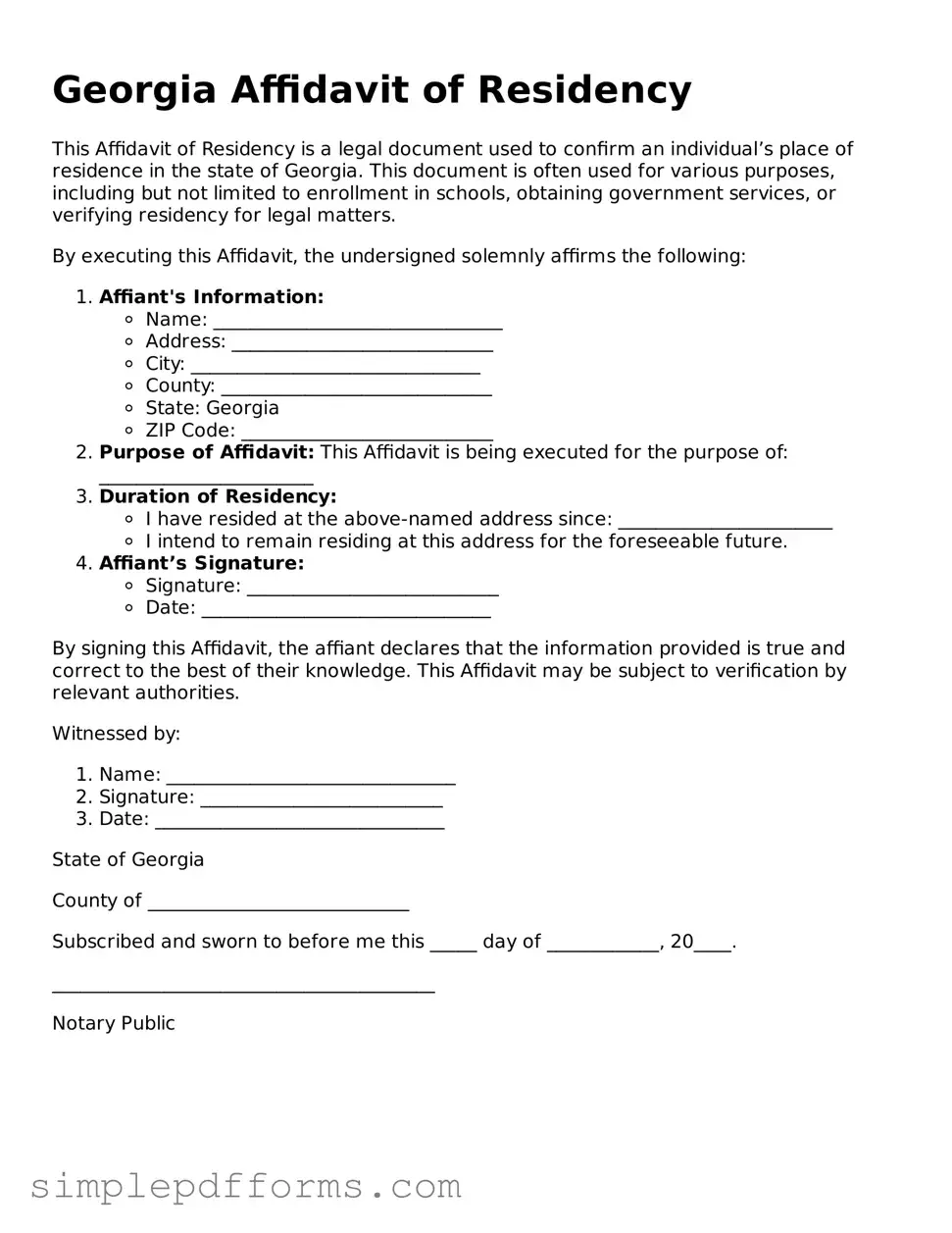Attorney-Verified Affidavit of Residency Document for Georgia State
The Georgia Affidavit of Residency form is a legal document that confirms an individual's residency in the state of Georgia. This form is often required for various purposes, including enrollment in schools or obtaining certain public benefits. Understanding its significance can help ensure compliance with local regulations and facilitate access to essential services.
Open Affidavit of Residency Editor Now

Attorney-Verified Affidavit of Residency Document for Georgia State
Open Affidavit of Residency Editor Now

Open Affidavit of Residency Editor Now
or
Get Affidavit of Residency PDF Form
Your form is waiting for completion
Complete Affidavit of Residency online in minutes with ease.